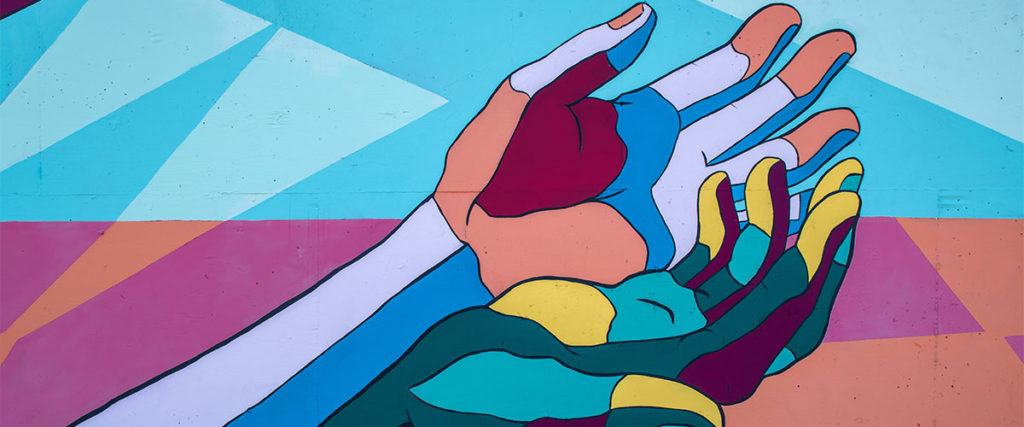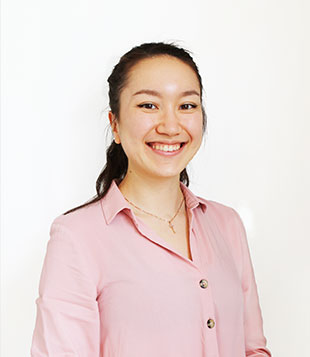The first of its kind in Singapore, Safe Space is a mental wellness app promising fast, discreet and affordable counselling at your fingertips.
1 in 7 Singaporeans are estimated to have experienced a mental illness at some point in their lives, among which less than a quarter seek professional help. This is mainly a product of the pervasive stigma surrounding mental illness in Singapore, with many attributing mental health conditions to a lack of self-discipline and willpower.
Safe Space is Singapore’s first online-to-offline counselling app that offers users a confidential, non-judgemental space to strengthen their mental resilience with professional therapists. They aspire to bridge the treatment gap and address stigma by providing easier access to affordable therapy sessions, both face-to-face and via video call. Between them, co-founders Antoinette Patterson and Navaneeth Sreekandan have worked alongside such advertising giants as Dentsu, BBDO, Isobar, DAZN Group and Singtel.
Hive Life caught up with the pair to discuss how Safe Space is reinventing counselling in Singapore, what their journey as a bootstrap business was like, and their take on the rise of online therapy amid COVID-19.
How does Safe Space work?
Safe Space provides the traditional experience of counselling with the benefit of convenience. By answering a series of 6 questions on the app, our A.I. matches you in real-time to a therapist that’s best suited to the problems you’re facing, whether that’s personal issues, relationships, financial issues or career-related. We also consider your therapist preferences – such as male, female, non-binary, LGBT-friendly – and language preferences. We’ve been told by users that our online chat price of SGD 30 is one of the cheapest they’ve managed to find and that it’s helped them continue with a second and third session. We’re also doing partnerships with insurance companies now to help make these sessions claimable by insurance.
What’s unique about Safe Space is that we’re helping therapists get exposure too. When we first started out, the majority of therapists we spoke to were older and not technology-savvy. They were looking for more clients, but had little knowledge of advertising or social media. By working with us, we’ve given them an online presence through our platform which, in turn, makes it easier for clients to actually find therapists faster.
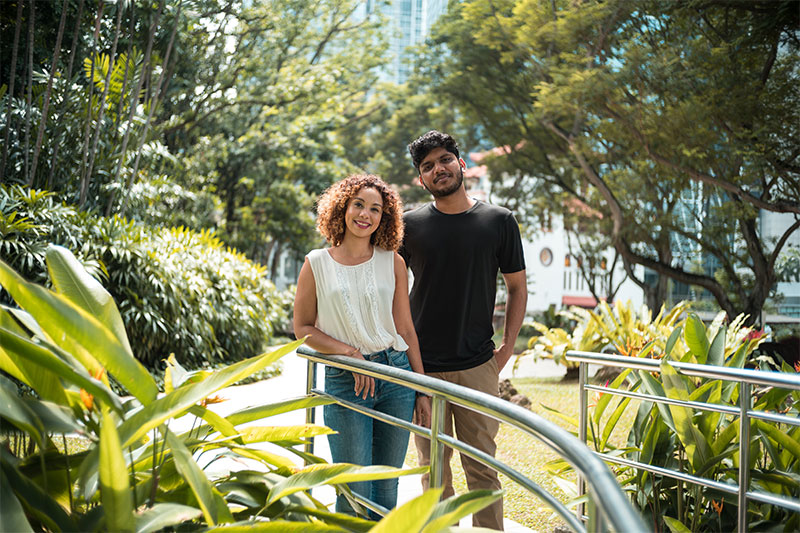
What inspired you to create the Safe Space app?
We both have backgrounds in advertising, which is a very high-stress role. Looking for a therapist or someone else to talk to at the time was very daunting because we wouldn’t know where to start or how to choose. If you type ‘psychiatrist,’ ‘Singapore’ or ‘ASAP’ on Google, often you encounter invasive questioning, long wait-times, unaffordable sessions, and the possible worry of being seen in a psychiatric clinic. A mutual friend connected us because we’d both gone through a similar struggle, so we brainstormed what we could do in terms of creating a streamlined, online solution for connecting people and counsellors together quickly.
Who is your target demographic?
Around 70% of our clientele are female and fall within the ages of 18 and 35. Marriage counselling and relationship counselling were popular search trends from what we’ve seen on Google Analytics. We’ve also had minors (16 and below) come onto our platform citing family disturbances, which is quite sad because a lot of therapists today can’t handle youths, and this gap is something we spoke about at a mental health panel held by raiSE, Singapore’s social enterprise arm. Youths don’t have enough counsellors, the transgender community doesn’t have enough counsellors, and more must be done to train up existing counsellors to handle those areas.
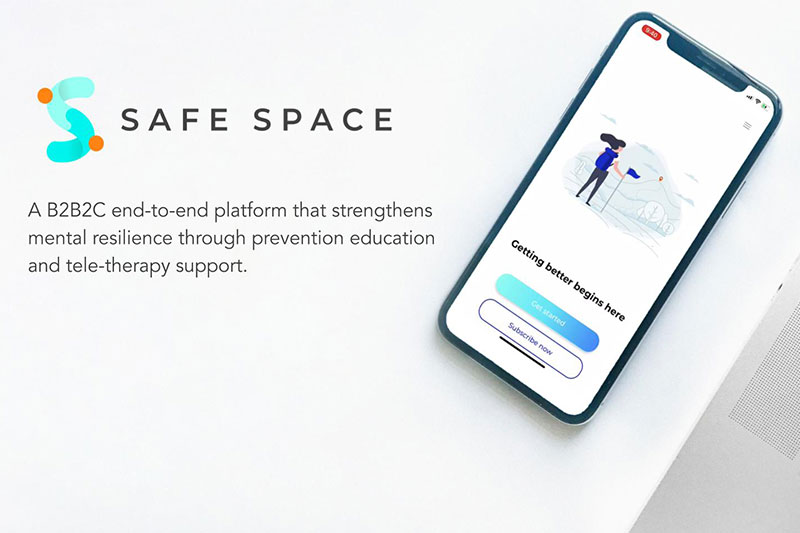
What was the mental health landscape like in Singapore when you started? How did that affect investor support initially?
When people hear the word ‘mental illness,’ it holds negative connotations already. So when you pitch to an investor, saying, ‘We’re a business tackling mental illness,’ no one wants to get into that. They want everything positive, so we replaced ‘mental illness’ with ‘mental resilience’ or ‘growth mindset’ to bypass the stigma. When we started in March 2019 as a bootstrap business, there were also no mental health tech startups in Asia, let alone Singapore. The only thing you had at the time were US-based companies like BetterHelp and Talkspace, so there was no research to guarantee that it would work here. We actually had to create our own research pieces on mental health, including B2B mental health and people’s responses to using mental health technology. The funny thing is that investors already know how important this is because the startup space is very high-stress and founder burnout is common across their portfolio companies. But, what they’re interested in is if a mental health startup can grow by tenfold. So we’ve had to prove a lot before they would even have a conversation with us. Due to COVID-19, those conversations are finally getting easier.
From what you’ve seen, how has COVID-19 impacted mental health in Singapore? How is Safe Space responding to that?
Generally, I think everyone’s anxiety has picked up – and that’s happening across people with or without mental health concerns. You’re worried about your job, you’re forced to stay at home when that might actually be the root of your distress; not everyone copes well in a work-from-home environment. We are seeing an increase in family disturbances and we’ve had lots of people reach out to ask whether we can provide a quiet space for them to even hold an online therapy session. Unfortunately, offices are closed nationwide so we’ve definitely had to adapt.
On our social channels, we are posting COVID-19 mental health tips every couple of days and that’s been quite well received. There’s also been a spike in terms of people Google searching for online counselling, so we’re currently setting up a video call feature for our in-person clients so that sessions can still continue as per normal, and all our therapists are being trained on how to use that while safeguarding their health as well.
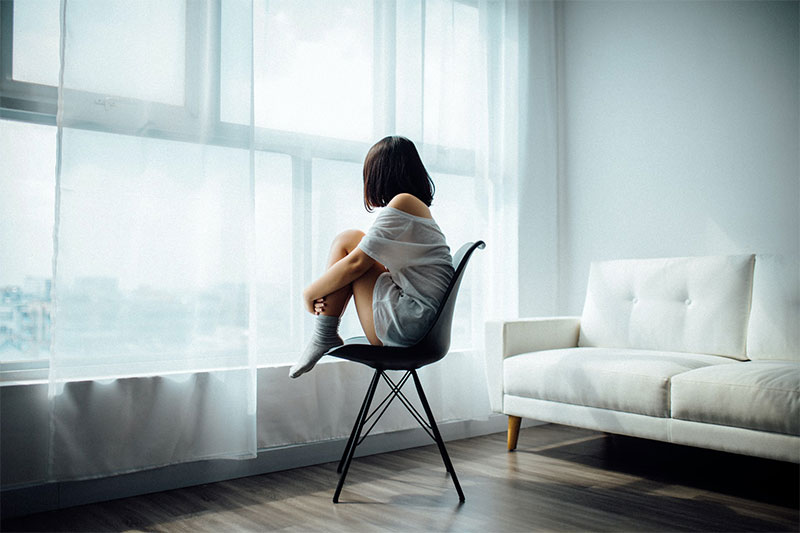
Do you see Safe Space transitioning more towards online therapy in the future?
While our clients have actually been more receptive to doing therapy online now, we think it’s a good balance to maintain both. In a video call, for example, you can’t always tell if a person is anxious or tapping their feet because they might appear calm onscreen. So a proper session still happens face-to-face, but a video call complements that, especially if they’re physically unable to meet. Starting online can also be easier on newcomers or those who are unwilling to approach treatment via conventional methods because they can speak to someone without leaving the comfort of their homes. Once they’ve become more comfortable with it, they should have the opportunity to move offline, which is more impactful.
What’s next for Safe Space?
We are fundraising our first round now and that’s primarily to scale up our team to support the demand coming through our platform during this period. That’s phase one. Phase two is to build a bigger marketplace – not just connecting people to therapists, but offering additional services as well, like classes that people can buy and attend within the platform. Phase three is to eventually ‘white label’ our solution. We’d love to work with like-minded investors or angel investors who share the same convictions as we do.
In light of COVID-19, our therapists are also trying to help out healthcare workers by providing pro bono services. So, if there are any healthcare professionals looking for free online chat counselling, you can direct them our way.
The Safe Space app is available on Google Play and the App Store.
Related Articles
Female Tech Founder Builds Thailand’s First Mental Health App, Reaches 63,000 People
M&C Saatchi Executive Relaunches Virtual Safe Space App to Empower Women
One Man’s Journey: Changing How We Talk About Men’s Mental Health
